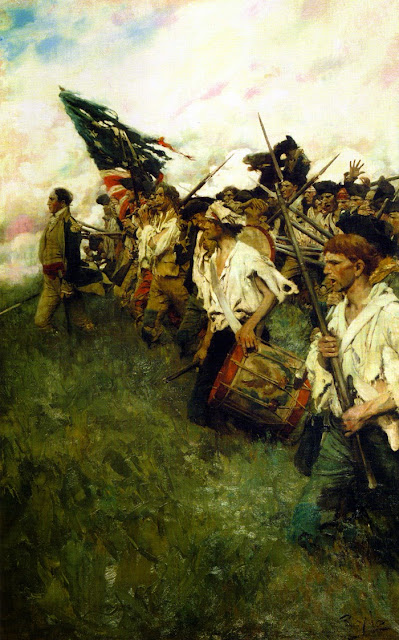 |
| "Nation Makers" Howard Pyle 1906 |
Jacob Hoover Military Service:
1755 Listed as "wagoner" serving under General Braddock in French and Indian War at the Battle of the Monongahela.
1776 Enlists in the Continental Army and is assigned to German Regiment with the rank of Private.
1776-1779 Participates in the following major battles: Battle of Trenton; The Forage War and Battle of Spanktown; Battle of Assunpink; Battle of Princeton; Battle of Brandywine Creek; Battle of Germantown; Battle of Monmouth; the Sullivan Expedition.
25 December 1776 German Regiment accompanies General George Washington crossing the Delaware River for a surprise attack on German Hessian mercenaries fighting for the British.
1777-1778 German Regiment encamps at Valley Forge during winter into early summer.
12 October 1779 Jacob Hoover receives discharge from the Continental Army.

















